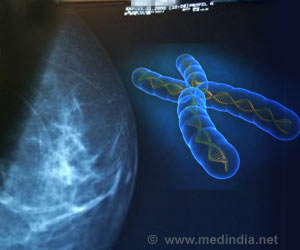The first question people ask doctors and themselves after being diagnosed with cancer is “why me?” Research in cancer often links it to genetics and lifestyle but researchers Bert Vogelstein (cancer geneticist, John Hopkins University, Baltimore, Maryland) and Cristian Tomasetti (biostatistician, John Hopkins University, Baltimore, Maryland) argue that most cancers are a result of biological bad luck.
In a paper published in Science on 2 January 2015, Vogelstein and Tomasetti write that random mutations during stem cell division cause two-thirds of cancers. The researchers examined 31 types of cancer and found 22 among them – including leukaemia, pancreatic, bone, brain, ovarian and testicular cancer could be explained by random mutations. Some other cancers like lung, colorectal and skin cancer were influenced by environment, lifestyle and genetic risks.Statistically, 65% of all cancers could be attributed to random mutations – essentially bad luck. According to Tomasetti, harmful mutations happen in the body’s stem cells for “no particular reason other than randomness.” In such a scenario, the researchers argue for focused research and resources to enable early detection of cancers.
However, this paper in Science as well as the news coverage of this study came under heavy criticism. On 13 January 2015, the International Agency for Research on Cancer (IARC), the cancer arm of the World Health Organization (WHO) issued a press release pointing out the likely negative impact of this study on cancer research and public health perspectives. If cancer is the result of biological bad luck, it would be considered a waste of research resources in looking for further causes.
IARC experts pointed out gaps in epidemiological evidence along with methodological concerns in this study. IARC director Dr Christopher Wild said that it was already known that an individual developing cancer includes a certain element of chance but concluding that “biological bad luck” is the major cause of cancer would negatively impact efforts to identify the cause and prevent the disease.
The takeaway from this study and the backlash around it is that while there is a certain degree of chance involved in cancer, there are many cancers which are preventable. According to the Prevent Cancer Foundation, only five percent of cancers are hereditary. Thus, most causes of cancer can be controlled by lifestyle choices, food, physical activity and adequate sleep.
Lifestyle Factors to Prevent Cancer:
- Non-smoking of cigarettes
- Healthy weight
- Eating fruits and vegetables
- Drinking less alcohol
- Being sun smart – avoiding strong radiation from UV rays
- Eating less red meat
- Avoiding processed and packaged foods
- Eating a high-fibre diet
- Being active and exercising healthy
- Eating less salt
- Avoiding work risks like working with asbestos
- Minimizing infections like HPV (human papilloma virus)
- Minimizing radiation like avoiding unnecessary x-rays
- Breastfeeding if possible
- Minimizing HRT (hormone replacement therapy)













